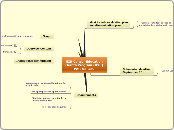r“Cancer education” grants may target a variety of audiences, including: science or health care students with an interest in cancer research careers; established cancer scientists seeking short term educational updates in emerging cancer science areas such as genetics and molecular drug discovery; and health care providers in need of information on the latest developments in cancer prevention and control. Grants that target community health care providers or community settings are intended to provide information needed to facilitate the diffusion of evidence-based findings within a relatively short time. The programs, which have been proposed for Cancer Education grants, may use a variety of formats, depending upon both target audiences and specific goals. Grants that are aimed at educating students, cancer scientists, cancer care professionals, clinicians, and/or community health providers, may develop and use primarily curriculum-based short-term educational experiences. Program delivery to the targeted audience(s) may take place in traditional educational settings or via web-based and other “virtual” approaches. Curriculum content may range from cancer biology and genetics to cancer prevention, control, and palliative care.
